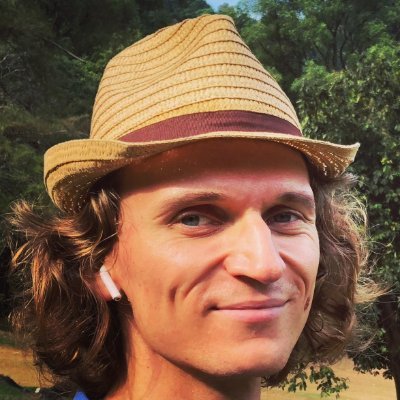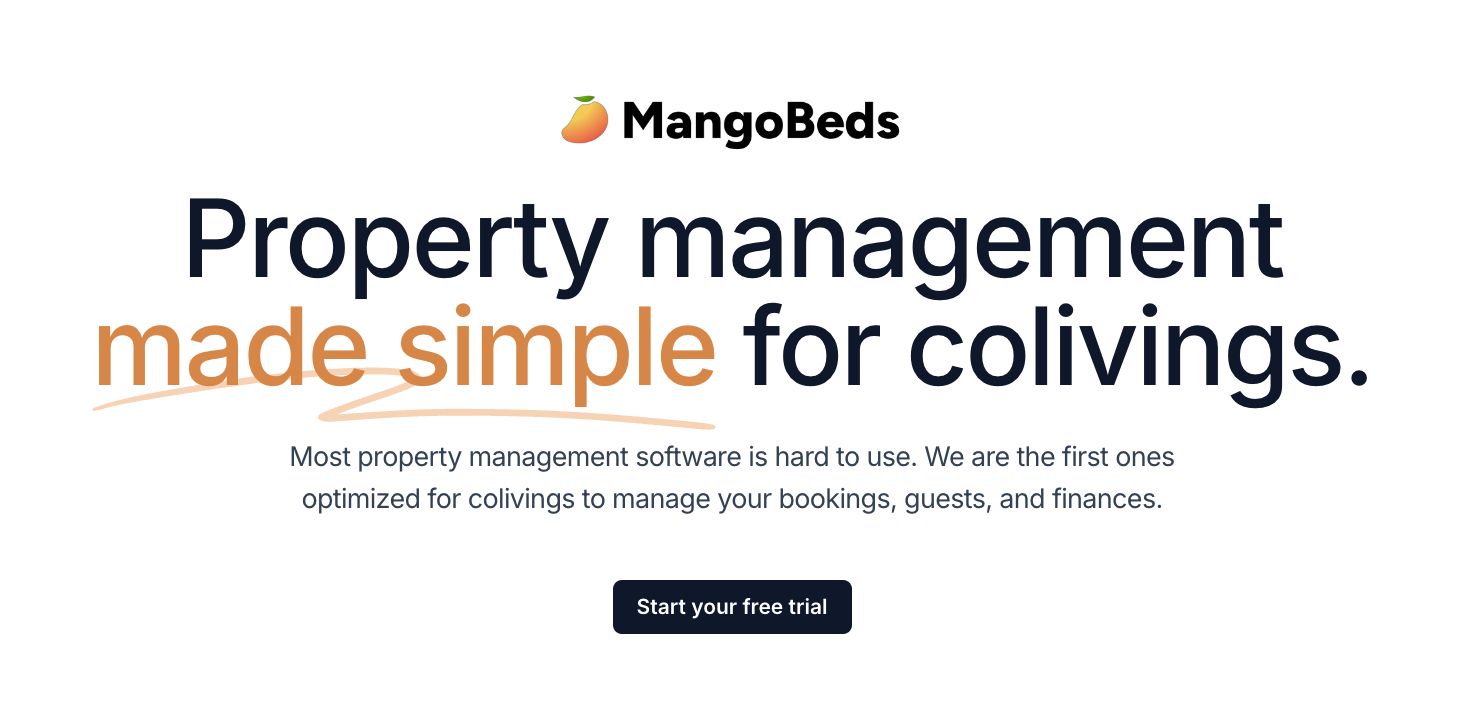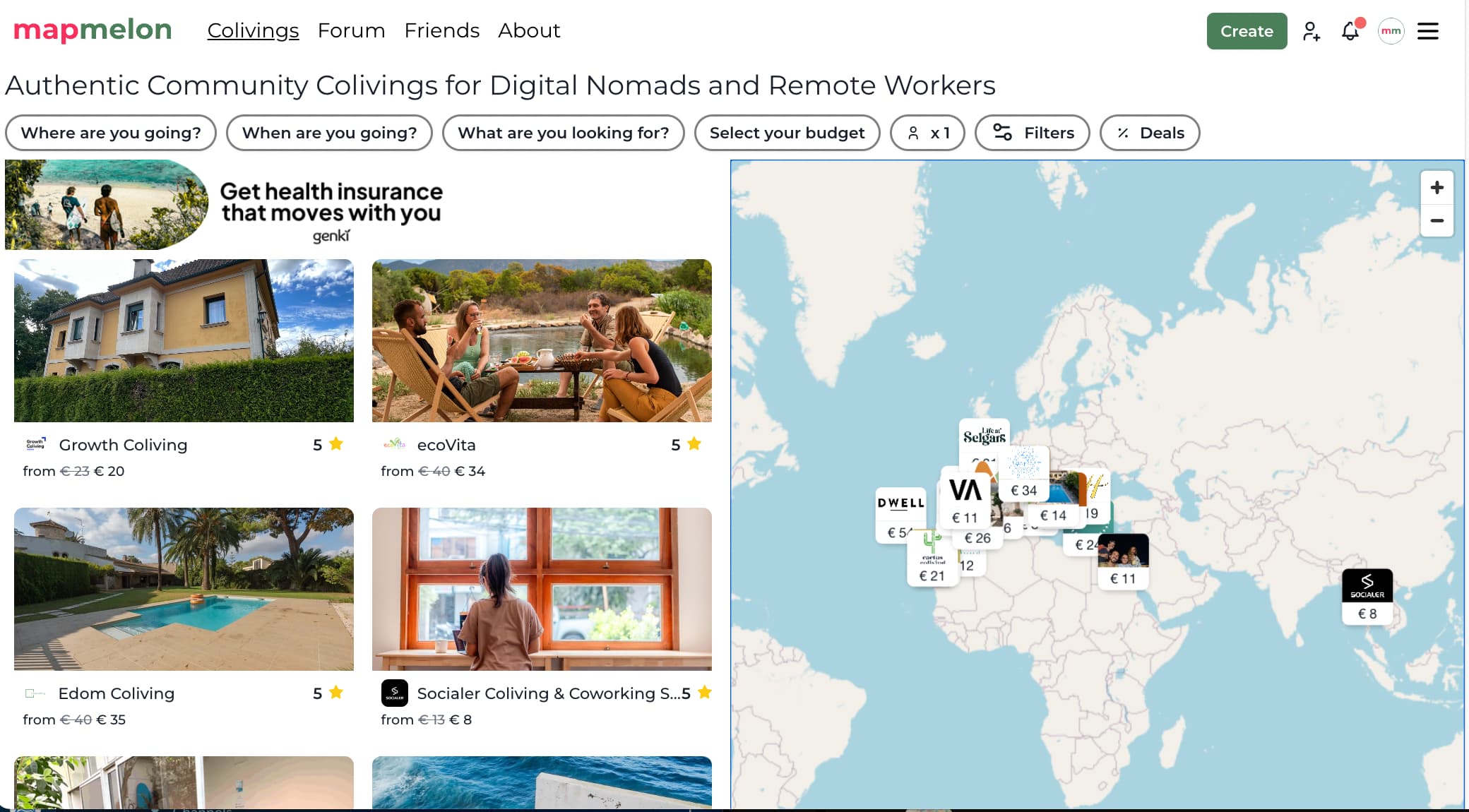Colivers Club Ep 18: Travel, Coliving & Podcasting with Piotrek Bodera from Nerd On Tour
What happens when a lifelong traveler shifts from leading fast-paced tours to embracing slow travel and coliving? For Piotrek Bodera, it meant rediscovering the power of connection—through community, dance, and storytelling.
As a tour guide for 15 years, Piotrek helped people tick off bucket-list destinations. But during the pandemic, he realized he wanted more than just travel—he wanted meaningful relationships. That led him to coliving, remote work, and eventually, his podcast Nerd on Tour, where he shares the unfiltered realities of digital nomad life.
🚀 In this episode, we talk about:
✨ How dancing (yes, dancing!) helps you open up
🌍 The shift from fast tourism to slow coliving
🎙️ Why he started Nerd on Tour to capture nomad wisdom
Read the Interview
César: Hello everyone, welcome to another episode of Colivers Club. I’m here today with Piotrek Bodera. Piotrek is a digital nomad with a background in tourism and web development since 2005. He hosts Nerd on Tour, a podcast where he interviews digital nomads around the world. Hello Piotrek, how are you?
Piotrek: Hello César. I’m very good, I’m excited to be here with you.
César: Me too! We met in Tenerife, right? Two years ago maybe?
Piotrek: Yeah, you know, it starts to get fuzzy remembering exactly when we meet every person. I think it’s because of the community in Tenerife that we both enjoy and are part of. It’s quite big at this point. So yeah, I think it was about two years ago.
César: Well, you don’t have a calendar appointment with the date registered today?
César: Our anniversary, man!
Piotrek: It’s very important! Yeah, I’m sorry. I definitely should write this kind of journal—dates, minutes, and how much time we spend every day… dancing salsa and having fun.
César: Yeah, I think our very first interaction was dancing, right? Were you a guest at Nine Coliving when we met?
Piotrek: I remember seeing you for the first time at an ecstatic dance event in Tenerife. I think maybe you were living around and considering staying at Nine Coliving?
César: That makes sense.
Piotrek: Yeah, I spent about three years in Tenerife, and most of my time there, I was at Nine Coliving—a really great community and an amazing place. I highly recommend it to everyone. At some point, I lived in La Orotava, the city where Nine is located, and I would visit from time to time for events. Later, I lived in Puerto de la Cruz, which is right next to it.
Piotrek: I think we met at one of those events, ecstatic dance for sure. It’s one of my favorites because it lets you tap into your childhood imagination but through movement. I remember as a kid, I loved dancing and imitating Michael Jackson and other artists, and I wanted to preserve that. Ecstatic dance is one of the best ways to let yourself go, have fun, and play with your own body to whatever crazy music is playing.
Piotrek: That’s how I remember it.
César: Yeah, I remember you made an impression on me because it was my first ecstatic dance, and I saw you dancing so freely. I thought, “Wow, that’s super cool!” For me, letting go of this—whether it’s shame or this idea that my movements need to look good—was super difficult. I don’t know if it was the same for you, but can you tell us about it?
Piotrek: Yeah, definitely. It’s not like I have a switch in my mind that I just flip and suddenly I can do whatever. That voice of self-doubt is always present. I went through a phase where I felt a bit ashamed of it or tried to hold back, thinking, “Oh yeah, that was just childhood behavior—dancing, imitating Michael Jackson, etc.”
Piotrek: But at this point, I’ve integrated it, and I’m proud of having a hobby that doesn’t require any gadgets and that you can do almost anywhere, to almost any music. I’m a bit picky, though—I need to enjoy the music first, then I can really get into the flow. And if others are also into it, that’s the perfect environment for me.
Piotrek: The worst part is when you’re stuck in your head, second-guessing yourself—“Oh, what if I move my hips too much? What if they think this or that?” No, ecstatic dance is all about forgetting everything you know about dancing and just doing whatever you want.
César: Yeah, the mind kills the being. And honestly, nobody else is thinking anything, it’s just you second-guessing yourself. No one cares. Or at least, ecstatic dance is a safe space where the whole idea is that you only care about how you move and your interpretation of the music.
César: I’d love to participate in another ecstatic dance because I feel like I dance better now—I connect more with myself. It’s super interesting to me, this whole dynamic.
Piotrek: Yeah, and I enjoy watching you dance salsa and other Latin styles! I haven’t really gotten into that yet.
César: Not yet, not yet.
Piotrek: Exactly! I haven’t spent enough time in Latin-speaking countries where dancing is so natural. But I think everyone can find their own comfort zone in dancing and then expand from there. For me, it was hip-hop and still is. If I hear a good beat, I can’t resist!
César: Skrillex, for example? I saw that was one of your favorite artists.
Piotrek: Exactly! I started with hip-hop, but now I enjoy dancing to electronic, drum & bass, house… I love exploring and being open. I’d even try ballet, why not?
César: That’s so cool! And I think being open-minded with dance translates to everything else—traveling, meeting new people, experiencing different cultures.
Piotrek: Totally agree. Even before leaving your home country, you have to open your mind to the fact that people live differently, speak different languages, and organize their lives in completely different ways. That’s what drove me to travel—I wanted to experience it firsthand.
César: And you’ve always been interested in tourism, right?
Piotrek: Yeah, tourism was my “hack” to travel. Since I was a kid, I wanted to find a way to see the world. Traveling seemed expensive, so I thought, “How can I make this work?” My dream destination was Japan, and when I was 21, I made it happen with a group of friends. We organized everything ourselves.
Piotrek: I had already been working in the travel industry for a few years—first as a caretaker at youth camps, then as a tour leader for Japan-focused tours. Later, I expanded to destinations like Italy and Australia. I worked as a tour guide for 15 years.
César: And now… coliving?
Piotrek: Exactly! The pandemic was a turning point for me. I realized I didn’t want to return to the travel industry in the same way. I wanted to stay in places longer, build deeper connections. So I shifted to web development and working remotely. Now I can choose any place on the planet to live and work. Right now, I’m in Kuala Lumpur, and next month I’ll be in Bali.
César: What differences do you see between the travel industry and the coliving industry?
Piotrek: The biggest difference is the mindset of the people. Traditional tourists have a set itinerary, trying to cram in as many experiences as possible in one or two weeks. Coliving is the opposite—it’s about slow travel, deep connections, and community.
Piotrek: Coliving spaces attract digital nomads who want to live and work in a place for a while. And thanks to platforms like Mapmelon, it’s easier than ever to find colivings around the world. The key thing about coliving is the community—meeting people, making friends, sometimes even finding romance.
César: Yeah! Every coliving is unique. You can’t plan too much because the best experiences happen spontaneously. Like yesterday—I’m at Burgas Coliving in Bulgaria, and my first full day here, I ended up going to the spa and having a movie night. No plans, just going with the flow!
César: In tourism, you don’t go with the flow. You have a strict schedule. But in coliving, the magic happens in the moment.
Piotrek: Absolutely! Coliving is still a new industry, and we’re all figuring it out as we go. There’s no blueprint—just a lot of creativity and community-driven innovation.
Piotrek: Yeah, and I think before we go further into the idea of a “template” for coliving, you’ve probably met people in colivings who are completely new to the concept. I love seeing how coliving changes their mindset.
Piotrek: Many of them come from a traditional work model, where they only have a week or two of vacation. But then, maybe they saw some Instagram stories, reels, or read about coliving, and they decide, “Okay, let’s give it a try.” So, they go to a coliving, maybe even join a trip to the spa with total strangers, and suddenly, they realize how fulfilling and different this lifestyle is.
Piotrek: It’s so different from their previous experiences that they start thinking, “Maybe I can become a full-time remote worker.” They start questioning, “What if I stay in this coliving for a month? What if I visit other colivings afterward? What if I meet even more people?” And then, they figure out a way to make it happen.
Piotrek: That’s the most amazing effect of coliving—it opens people’s minds. People who thought remote work was impossible because of their job, their boss, or their industry suddenly see another path. Sometimes, it even means they leave their job to become freelancers, just like you did.
César: Totally! I quit my job three weeks ago and started freelancing. For me, coliving means a lot of things—it makes me happy. I get to explore amazing places, travel slowly, go with the flow, and be part of incredible communities.
César: I also get to reunite with people I met in my “previous life.” Every coliving is like a new chapter, a new life where I can reinvent myself and grow. To me, coliving means growth. What does it mean to you?
Piotrek: For me, coliving was a safe harbor. I started before the pandemic, and Hatchery Place in Kuala Lumpur was the first coliving I tried. I wasn’t even sure if I’d like it, but I met some of my best friends there, people I’m still in touch with years later.
Piotrek: And now, next month, I’ll be in Bali, reuniting with friends I first met four years ago. We didn’t get a chance to see each other because of the pandemic and life changes, but coliving creates these long-lasting connections.
Piotrek: During the early pandemic years, coliving kept me sane. I was staying at Nine Coliving, and while the world was in chaos, I was in a place with an incredible community. My work was uncertain, travel was restricted, and going back to Poland didn’t make sense. Why leave when I was already in paradise, surrounded by amazing people?
Piotrek: That’s what coliving is to me—community, friendships, and a sense of belonging.
César: True! And food plays such a huge role in coliving. The kitchen is the heart of every space. So many conversations and connections happen over meals.
César: We even interviewed Marta Clari, an official coliving architect, and she talked about how important the kitchen is in designing a coliving. Food is such an incredible way to connect with people and with the local culture. What’s your take on that?
Piotrek: Oh, absolutely! Thanks to coliving, I actually learned how to cook for 20 people at once.
Piotrek: I had this experience in France, in a pop-up coliving in Saint-Jean-de-Luz, near the Spanish border in the Basque Country. It was a coliving just for friends, and you had to be recommended by someone to join. I got in through friends I met at Nine Coliving.
Piotrek: The original plan was for a local French woman to cook for us, but she had to step away for health reasons. So I stepped in and said, “Hey, I can cook.” At that time, my freelance work wasn’t too busy, so I started making lunch and dinner for the group during the weekdays.
Piotrek: It was one of the most fulfilling experiences—preparing big salads, curries, and dishes inspired by Indian and Italian cuisine. Everyone loved it! It reinforced what you were saying about meals being central to human connection.
Piotrek: Sitting together for a meal is primal—it dates back to prehistoric times. It’s that same feeling of gathering around a fire. We naturally start talking, sharing stories, and bonding over food.
Piotrek: And especially during the pandemic, when people were isolated in their apartments, missing those casual office coffee machine conversations, coliving became even more important.
Piotrek: In traditional hotels or Airbnbs, people keep to themselves—there’s an expectation of privacy. But in coliving, it’s the opposite. It’s in the name: we live together. So we cook together, eat together, and build relationships naturally.
César: Yeah! That curiosity you have—about food, travel, meeting people—it’s probably what led you to start Nerd on Tour. What inspired you to create the podcast?
Piotrek: I kept meeting amazing people and having incredible conversations. And I thought, “These moments should be shared.”
Piotrek: I think it started with my first long solo trip over 10 years ago. I backpacked for six months, traveling through Japan, Taiwan, China, Southeast Asia, Australia, and New Zealand. At that time, I was more of a backpacker than a digital nomad—this whole nomad lifestyle wasn’t really a thing yet.
Piotrek: But even back then, I kept meeting incredible people with stories worth sharing. And I thought, “How can I preserve these moments?”
Piotrek: Later, when I discovered the digital nomad movement, I realized, “Wow, this is even bigger than just backpacking.” It’s not just about travel—it’s a lifestyle that blends technology, work, and adventure.
Piotrek: So I started the podcast to capture these conversations—to share wisdom, tips, and inspiration. Because let’s be real—being a digital nomad is not easy.
Piotrek: There’s a lot to figure out: visas, taxes, where to set up your company, finding stable work, managing time zones, staying productive while traveling… It’s a lot!
Piotrek: But when you talk to people who’ve done it, who’ve made it work, it becomes so much easier. That’s why I wanted to create Nerd on Tour—to give people access to those insights.
César: That’s amazing! I feel the same way—there’s so much magic in these conversations.
César: You meet someone, and after the basic “Where are you from?” and “What do you do?” questions, there’s this moment where you really start to connect. And that moment is pure gold.
César: That’s why I love coliving. It’s all about sharing—sharing experiences, knowledge, and stories. And conversations like these help us all learn more about the digital nomad community.
Piotrek: Exactly! When I did that six-month trip, I knew it would be a defining experience in my life. And I wanted a way to keep that feeling alive.
Piotrek: I’ve always been fascinated by travelers—whether they were tour guides, photographers, or explorers. But when I found digital nomadism, it felt like the ultimate combination of technology and adventure.
Piotrek: It’s not just about traveling—it’s about creating a lifestyle that works long-term. And that’s what I love sharing on my podcast—real conversations with real nomads, talking about the challenges and rewards of this lifestyle.
César: Yeah! It’s not just “10 Best Things to Do in Tenerife”—it’s about the real experiences. That’s what makes it special.
César: You wouldn’t expect the last one, yeah.
Piotrek: You know, I’m happy that people are doing that, and it’s definitely useful. But where is the connection? Where is the relationship that we can create and stay in touch with? Where is the curiosity about other people living in different places?
Piotrek: Like I was telling you about my friend Mark from Switzerland—if I’m constantly traveling from one country to another and don’t always know where I’ll be next year, the same is true for many of my best friends who are digital nomads.
Piotrek: I can’t expect them to always be in Malaysia the next time I visit, but that doesn’t mean I lose the connection. Coliving is an amazing space where we come together physically, share moments, and create bonds. But then, podcasting adds another dimension to that.
Piotrek: Right now, we’re on two different continents, yet we’re having a meaningful conversation, sharing our experiences with listeners. This, in my view, is the sustainable future of traveling and digital nomadism.
Piotrek: Because if we can’t preserve and share these experiences, if we don’t build a culture around it and make it accessible to others, then what’s the point? It has to have meaning.
Piotrek: For me, that meaning comes from running my podcast, spending time in colivings, and having conversations like this. That’s the best value we can get from this lifestyle.
César: Wow… I’m speechless. I can totally feel the emotion and thought behind your words. And to me, that’s what really matters—the connection.
César: Well, Piotrek, it has been a pleasure having you on Colivers Club. I think this interview might be reversed at some point, and I’ll find myself being interviewed for your amazing podcast, Nerd on Tour.
César: To all our listeners, make sure to check it out! And with that, this has been another episode of Colivers Club. Thank you, Piotrek!
Piotrek: Thank you very much, César! See ya!
César: Bye!




0 Comments